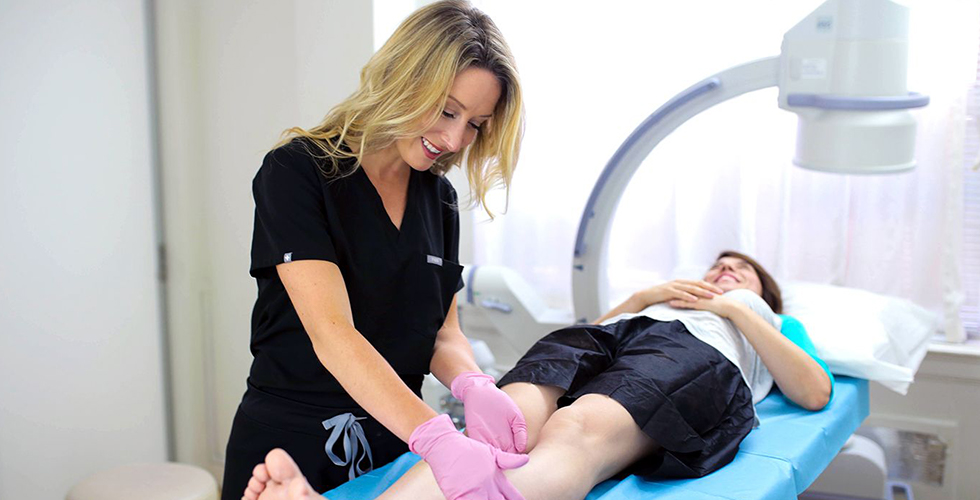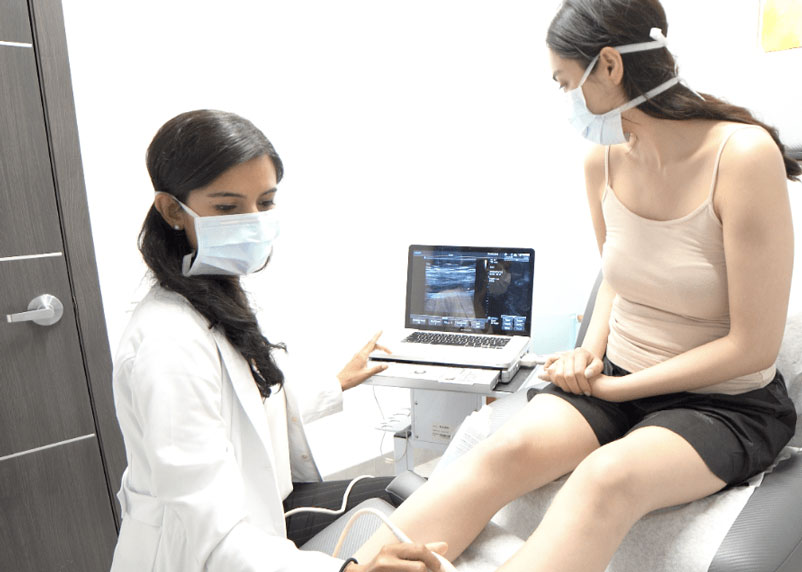Which doctor to consult for leg swelling?
Most people don’t think about their veins very much, but when they start to cause problems, they can be very noticeable. Leg swelling is one such problem. When your legs swell, it can be uncomfortable and even painful. But what causes leg swelling, and which doctor should you consult to get relief?
There are many possible causes of leg swelling. It could be a simple case of standing or sitting for too long and not getting enough circulation in your legs. However, if you have swelling that is accompanied by pain, cramping, or a feeling of heaviness, it’s likely that you have a problem with your veins. That’s when it’s important to see a vein doctor.

Vein doctors, also known as phlebologists, are trained to diagnose and treat vein diseases. They perform a physical examination and additional tests, such as an ultrasound, to confirm the diagnosis. Once your diagnosis is confirmed, your vein doctor will work with you to develop a treatment plan, which may include lifestyle changes, exercise, compression stockings, and minimally invasive spider vein and varicose vein treatments.
If you are concerned about leg swelling, the best thing to do is to contact a board-certified vein doctor to determine the cause. You can find our vein doctors in Long Island, New York, California, New Jersey, or Maryland. With proper treatment, you can relieve your symptoms and improve your overall health.

I have leg swelling after a car accident. What does it mean?
When you are in a car accident, your body goes through a lot of trauma. You may not feel any injuries right away, but they may start to show up later. One common issue is swelling in the legs. This can be caused by various things, such as bruising, breaks, or even something as simple as inflammation.
If you have swelling in your legs after a car accident, it is important to have it checked out by a medical professional. They will be able to determine the cause and whether or not it is something serious. If the swelling is accompanied by pain, numbness, or any other symptom, be sure to mention it to the doctor.
There are a few things you can do at home to help reduce the swelling. First, try to elevate your legs as much as possible. This will help reduce the amount of blood flowing to the area and hopefully reduce the swelling. You can also apply ice to the area for 20 minutes at a time, several times a day. This can help reduce inflammation and pain.
How do you know if swelling is serious?
If you experience leg swelling, it is important to pay attention to other symptoms that may accompany it. In some cases, leg swelling may be a sign of a more serious condition and require medical attention. Here are some symptoms that may indicate that your leg swelling is serious and when you should seek medical care:
- Swelling that occurs suddenly or is particularly severe
- Swelling that is accompanied by pain, redness, or warmth
- Swelling that restricts your range of motion or makes it difficult to walk
- Swelling that persists for more than a few days
- Swelling accompanied by leg heaviness, restless leg syndrome, and leg cramps
- Swelling accompanied by spider veins and varicose veins
If you are experiencing any of these symptoms, you should see a vein doctor as soon as possible. They will be able to determine if your leg swelling is serious and provide you with the appropriate treatment.
What would cause swelling in one leg only?
There are two primary conditions that could cause swelling in one leg only: chronic venous insufficiency and deep vein thrombosis.
- Chronic venous insufficiency (CVI) is a condition in which the veins have difficulty sending blood back to the heart. This can cause blood to pool in the legs and feet, leading to swelling. CVI is common in older adults and can be caused by factors such as obesity, pregnancy, and prolonged standing.
- Deep vein thrombosis (DVT) is a condition in which a blood clot forms in the deep veins, usually in the leg. DVT can cause the leg to swell and can be very painful. If the clot breaks loose, it can travel to the lungs and cause a pulmonary embolism, which can be fatal.
While CVI and DVT are both serious conditions, they can be treated. CVI can be treated with lifestyle changes and minimally invasive vein treatments. DVT can be treated with blood thinners, which help to dissolve the clot. If you are experiencing swelling in one leg, please schedule an appointment at our state-of-the-art vein treatment clinic near your location.
What happens if leg swelling is left untreated?
If you have swelling in your legs, it’s important to seek treatment right away. Left untreated, vein disease can cause serious health complications. Vein disease is a common condition that occurs when the valves in your veins stop working properly. These valves are responsible for keeping blood flowing in the right direction. When they’re not working properly, blood can pool in your veins and cause swelling.
Swollen legs can be painful and uncomfortable. You may also notice that your skin looks different. It may be discolored, thin, or dry. If you have swelling in your legs, it’s important to seek treatment right away. Left untreated, leg swelling may lead to skin discoloration, leg ulcers, deep vein thrombosis, and other long-term health complications of vein disease.
Does walking help with leg swelling?
Yes, walking can help with leg swelling. When you walk, your muscles push against your veins and help move blood back up to your heart. This helps reduce the pooling of blood in your veins and can reduce the swelling in your legs. Walking is also a low-impact activity that won’t put too much stress on your legs.








